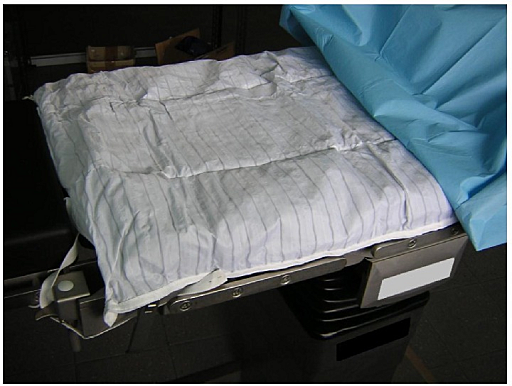University of Florida Health Tackles Perioperative Hypothermia

While University of Florida Health physicians are committed to tackling difficult and complicated challenges to improve the health and outcomes of patients, they also are mindful of examining and improving standard care pathways, which can make a big difference for patients.
Researchers at UF Health led by Dr. Thomas Read, chief of the division of gastrointestinal surgery, are working to improve outcomes for patients who undergo colon and rectal surgical procedures by helping them avoid complications associated with hypothermia, which is thought to increase the risk of post-colectomy infections.
Hypothermia is thought to increase the risk of post-colectomy infections. Dr. Read’s group conducted a study to determine when patients get cold as they undergo elective colectomy. They found that most body temperature loss occurs in the preoperative period, rather than during the operation itself as was previously believed. Dr. Read was first author on a study published in Techniques in Coloproctology in May 2018 that explored this phenomenon. He points out, “approximately 15 years ago, efforts were made to actively re-warm patients during surgery to restore their body temperature, but not surprisingly, patients lose body heat before surgery begins.
“Surgeons know that patients do better when they’re kept warm. Ironically, operating rooms are kept cold because surgeons, nurses and other health care professionals are all working under hot lights with gowns over their clothes, but patients are almost completely undressed and are at risk of further losing body heat when intubated because of the loss of thermoregulation with anesthesia.” Dr. Read’s group has used forced air heater blankets to warm patients before surgery and as they go into the operating room to help reduce heat loss. “We’ve found that this simple technique reduces the need for expensive warming methods during surgery and leads to better outcomes for patients.”
[TS1]Link to article
https://www.ncbi.nlm.nih.gov/pubmed/29855816
Blog featured image credit: A proposed methodology to control body temperature in patients at risk of hypothermia by means of active rewarming systems.